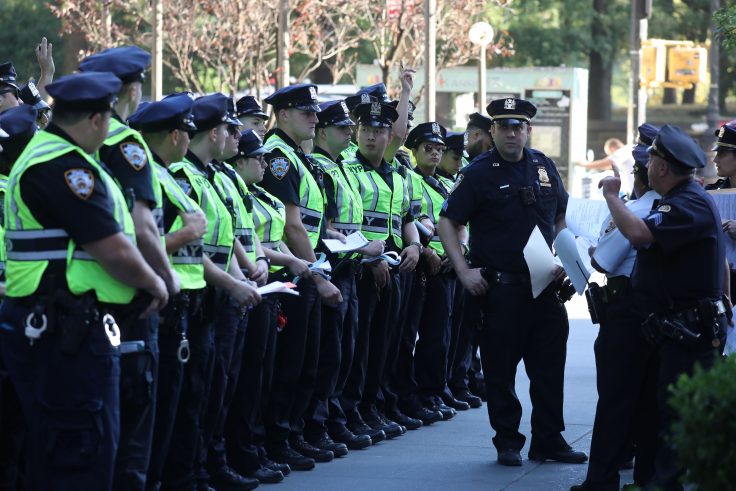A new bipartisan bill aims to provide much-needed information to lawmakers about the rising scourge of suicide among America's police officers.
The Law Enforcement Suicide Data Collection Act is in large part the brainchild of Sen. Josh Hawley (R., Mo.), who told the Washington Free Beacon in an interview that lawmakers radically underestimate how suicide is affecting the law-enforcement community.
"The extent of the police suicide problem is one that is unknown to most folks," Hawley said. "I've had journalists, I've had fellow members say, 'Well, is that really a problem?' I say, 'You should look at the data, it's a huge problem!' Just as deaths of despair across every segment of our society are a problem."
Hawley is not underestimating the scale of the challenge faced by the police. Officer suicides have risen annually since 2016. As of 2018, police officers were more likely to die from suicide than in the line of duty. The trend reflects the broader epidemic of suicide which has swept the nation since 1999.
Six members of the New York Police Department committed suicide in just three months. As of August, there had been 120 police suicides in 2019; data gathered by the Centers for Disease Control indicate that law-enforcement suicide rates are 40 percent higher than the general population.
The bill, sponsored by Sen. Catherine Cortez-Masto (D., Nev.) and cosponsored by Sens. Hawley, Chris Coons (D., Del.), Dick Durban (D. Ill.), Charles Grassley (R. Iowa), and Roy Blunt (R., Mo.), responds to this troubling trend by establishing a data collection program under the direction of the FBI. The program would collect voluntarily submitted information from law enforcement agencies on the circumstances, location, method, and other features of officers' suicides or suicide attempts. The FBI would then report annually on the trend in officer suicides.
That data collection follows previous efforts to provide mental-health care and suicide prevention resources to local law enforcement. The STOIC Act, introduced by Hawley and signed into law by President Donald Trump in July, dedicated $7.5 million annually to help provide mental health services to officers.
Hawley linked the rising rate of police suicide to "the trauma that police officers are exposed to, that they voluntarily expose themselves to," as well as "the lack of available resources to get help."
"Many of them are probably experiencing PTSD, but do they have the resources to deal with that, to get some help if they need it, to learn more about it? I don't know if they do," he said.
At the same time Hawley connected the spate of police suicides to wider spikes in suicide, drug overdose, and alcohol-associated deaths—what are commonly collectively referred to as "deaths of despair."
"It's hard to find a demographic of our society in which suicide numbers are not up at least a little bit," he said. "I think it should be very, very concerning that the data suggest that these deaths of despair tend to fall heavily, if not disproportionately, on working-class folks and family, that's also very concerning. I think it should point us to the fact, once again, that the American middle—working-class, middle-class families—are under stress and strain."
Those families likely include many American cops, whose median annual salary is around $63,000, only slightly higher than the median income of the U.S. household.
There are other reasons cops are disproportionately affected. Suicide rates, which have crept up slowly over the past two decades, were one of the driving factors in declining life expectancy among American men; policing is a heavily male profession. And the CDC's report on suicide by occupation found that similar jobs, such as firefighters and correction workers, also had high rates of suicide.
The suicide epidemic hits close to home for Hawley. A recent report from the Missouri Department of Health found life expectancy has fallen by nearly a year in the state, thanks in large part to a 50 percent increase in suicides between 2012 and 2018.
